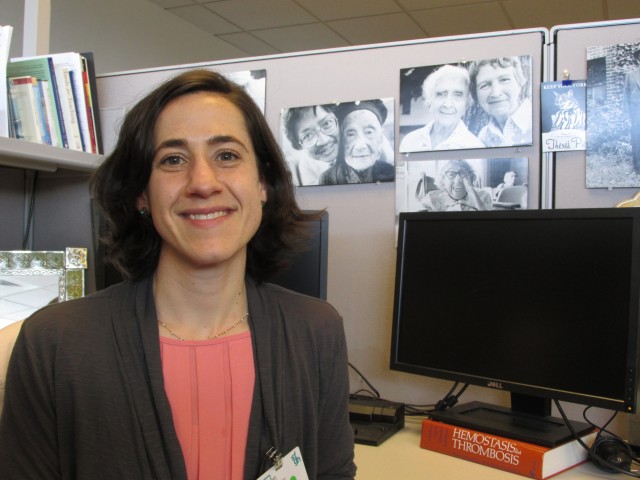
Editor's Note: As Californians live longer, the number of dementia, a disease that destroys not only memory but also critical-thinking skills will grow. As part of our ongoing series on health, called Vital Signs, we hear from Anna Chodos, a physician specializing in geriatrics. She says that social services can often keep people with dementia safe in their homes, but many older adults aren't getting the diagnosis they need.
By Anna Chodos
To diagnosis [dementia] early is to give people a chance to be a part of planning for the future in a very meaningful way. And that's exactly what I'm not seeing. I'm seeing people stuck in situations where they now don't have the ability to engage with you in complicated decision making and they’re not making safe decisions for themselves.
Dementia can affect your ability to remember to pay bills. It affects your ability to comply with your medical plan.You know, just the other day, I heard of a woman who received multiple notices that she hadn't paid her rent. And at the end of the week, on a Friday evening, she was in the offices of one of her local senior centers, without a clue of what else to do saying, 'I think I was just evicted. They won't let me back into my home.' And she was effectively homeless after not really understanding what had happened.
I tend to see [these patients] when it's a crisis. And everybody finally notices it when it's a crisis--a safety issue like a fall or a broken arm or an eviction. But prior to that, in a lot of ways, everybody was doing their job. And yet this person was very vulnerable.